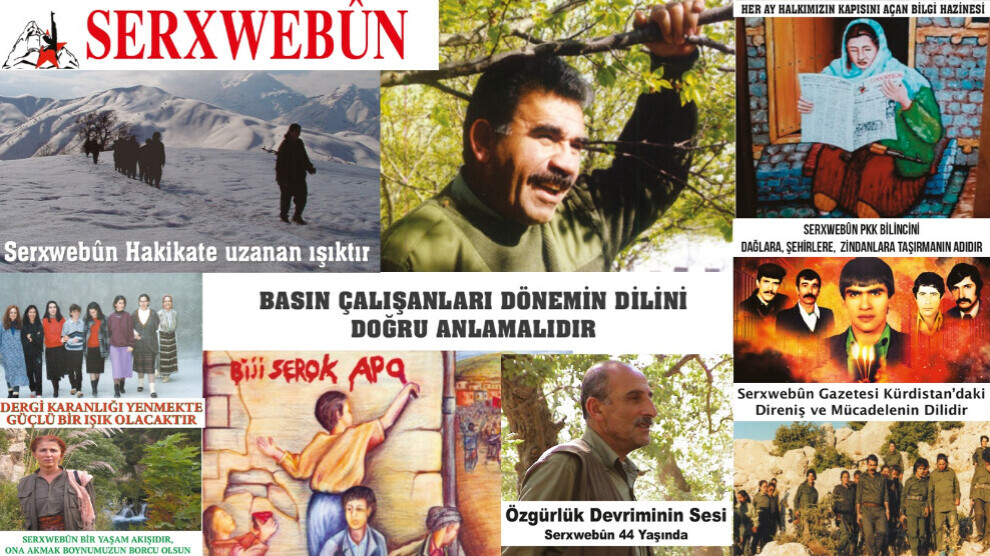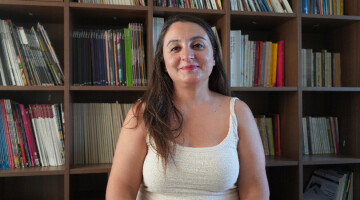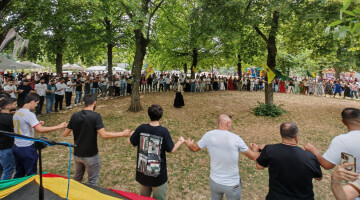The Kurdish newspaper Serxwebûn (Independence) has been published without interruption since January 1982. However, the first issue was published 44 years ago, when the manifesto "The Path of Revolution in Kurdistan" was printed in October 1978.
In the current special 44th anniversary issue, a text written 45 years ago by Mazlum Doğan entitled "Why the Liberation Movement Needs an Ideological Publication Organ" has been published for the first time. In it, the PKK co-founder writes: "Since there has been no truly liberating, revolutionary struggle so far, there is no such publication in Kurdistan. However, we have decided to raise and develop the revolutionary struggle." Under the changing conditions, the respective form of struggle had to be adapted and communicated, and an appropriate medium was necessary for its dissemination.
Serxwebûn is not only a newspaper with ideological analyses, current assessments and historical background articles, but also a publishing house. Within forty years, 480 issues of the newspaper and over 200 books have been published. In addition, the publishing house has published 15 albums of martyrs and 34 special editions. A wall calendar is also published every year. Between 1983 and 1995, the publishing house also published the newspaper Berxwedan (Resistance), first at irregular intervals and later as a monthly newspaper. Twelve Serxwebûn employees died in the Kurdish liberation struggle.
Abdullah Öcalan wrote about the publication of the newspaper Serxwebûn: "In order to bring our social reality to light, there are tasks that we have to fulfil. (...) However, Serxwebûn can only carry out its task with the active support of the revolutionary, patriotic and working people of Kurdistan."
An article in the special edition by Duran Kalkan, a member of the PKK Executive Council, says: "Serxwebûn is the central organ of the Kurdistan Freedom Movement. Because the newspaper is a central medium, it is a work of the Leader from the very beginning. Serxwebûn is a treasure of information of humanity."
Dilzar Dilok of the PKK Central Committee describes the newspaper as the "voice of resistance and struggle in Kurdistan" and an archive of free Kurds.















